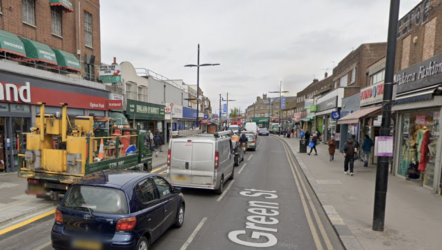The risk of a terror attack in the UK is rising with domestic plotters harder to detect, a persistent threat from Islamist extremists and advances in technology being exploited, a report has found.
The Home Office counter-terrorism strategy Contest has been updated for the first time in five years.
Since it was last updated in 2018, there have been nine declared terrorist attacks in the UK in which six people were killed and 20 injured.
Police and security services have also disrupted 39 plots that aimed to target public figures such as MPs, events including the London Pride march, and popular sites in London.
The strategy said the Government must “ruthlessly prioritise finite resources” to respond effectively to terrorism.
It said: “We now face a domestic terrorist threat which is less predictable, harder to detect and investigate; a persistent and evolving threat from Islamist terrorist groups overseas; and an operating environment where technology continues to provide both opportunity and risk to our counter-terrorism efforts.
“We therefore judge that the risk from terrorism is once again rising.”
The terror threat to the UK is dominated by individuals or small groups which are harder for law enforcement and security services to detect.
The primary threat is from Islamist extremism, which accounts for 67% of attacks since 2018, around 75% of MI5 caseload and 64% of those in custody for terrorism.
Extreme right-wing terrorists have accounted for 22% of attacks since 2018, around 25% of MI5 caseload and 28% of those in custody for terror offences.
The report said: “The threat from extreme right-wing terrorism (ERWT) in Western countries is increasingly a transnational issue in terms of radicalising influence, inspiration and communication, unlike Islamist terrorist groups, extreme right-wing terrorists are not typically organised into formal groups with leadership hierarchies and territorial ambitions, but informal online communities which facilitate international links.”
It went on: “Extreme right-wing terrorist narratives are also exploited by hostile actors such as Russia, which is seeking to promote divisive and polarising narratives in the West, which is likely to increase in the future.”
There is also a risk posed by terrorists after they are released from prison, with some offenders needing monitoring for decades, the strategy said.
As of March 2023 there were 232 people in custody for terror offences in the UK.
The report said: “Those convicted of terrorism or a related offence may continue to pose a threat; four of the nine declared terrorist attacks in the UK since 2018 were perpetrated by serving or recently released prisoners.
“Individuals convicted of non-terrorism offences may also hold a terrorist mindset or develop one during their time in prison.”
It continued: “Despite ongoing efforts to mitigate the terrorist risk posed by individuals in custody, the vast majority will require long-term risk management which may last for decades post-release.”
As well as an attack in Whitemoor prison, atrocities in Reading, Fishmongers Hall in the City of London and Streatham in south-east London were carried out by men with previous convictions.
There are concerns that the second half of this year will be particularly demanding in terms of the number of prisoners deemed to pose a risk in terms of terrorism who are due for release.
The risks posed by the so-called incel movement are also being monitored.
The strategy said: “It is possible that violent adherents to movements and subcultures, such as Involuntary Celibacy (Incels), could meet the threshold of terrorist intent or action.”
Labour said the strategy is “still too narrow and leaves alarming strategic gaps”.
Shadow security minister Holly Lynch said: “The update fails to provide a comprehensive strategy to deal with the steep rise in state-sponsored threats to UK national security, including from Russia, Iran and China.
“The head of MI5 made clear in his annual threat update that ‘Iran is the state actor which most frequently crosses into terrorism’, yet this doesn’t feature at all.
“There is also no serious plan to deal with online radicalisation or hateful extremism, despite the long-standing warnings of the former countering extremism commissioner, Sara Khan, and the Government has further failed to recognise the vital link between neighbourhood policing and counter-terrorism work, which successive counter-terror chiefs have highlighted as essential.”
https://www.eastlondonadvertiser.co.uk/news/national/23662756.risk-terror-attack-uk-rising-report-warns/





